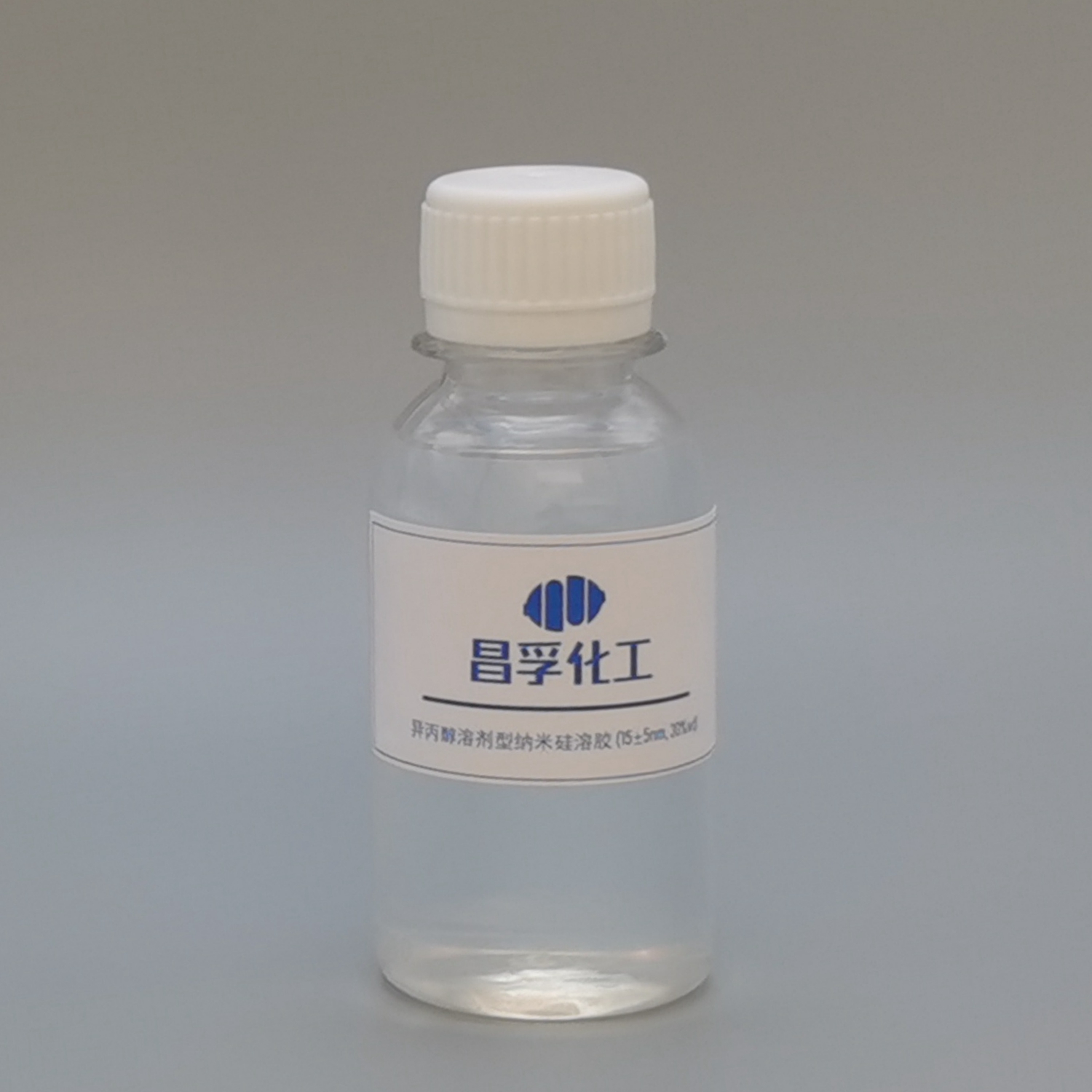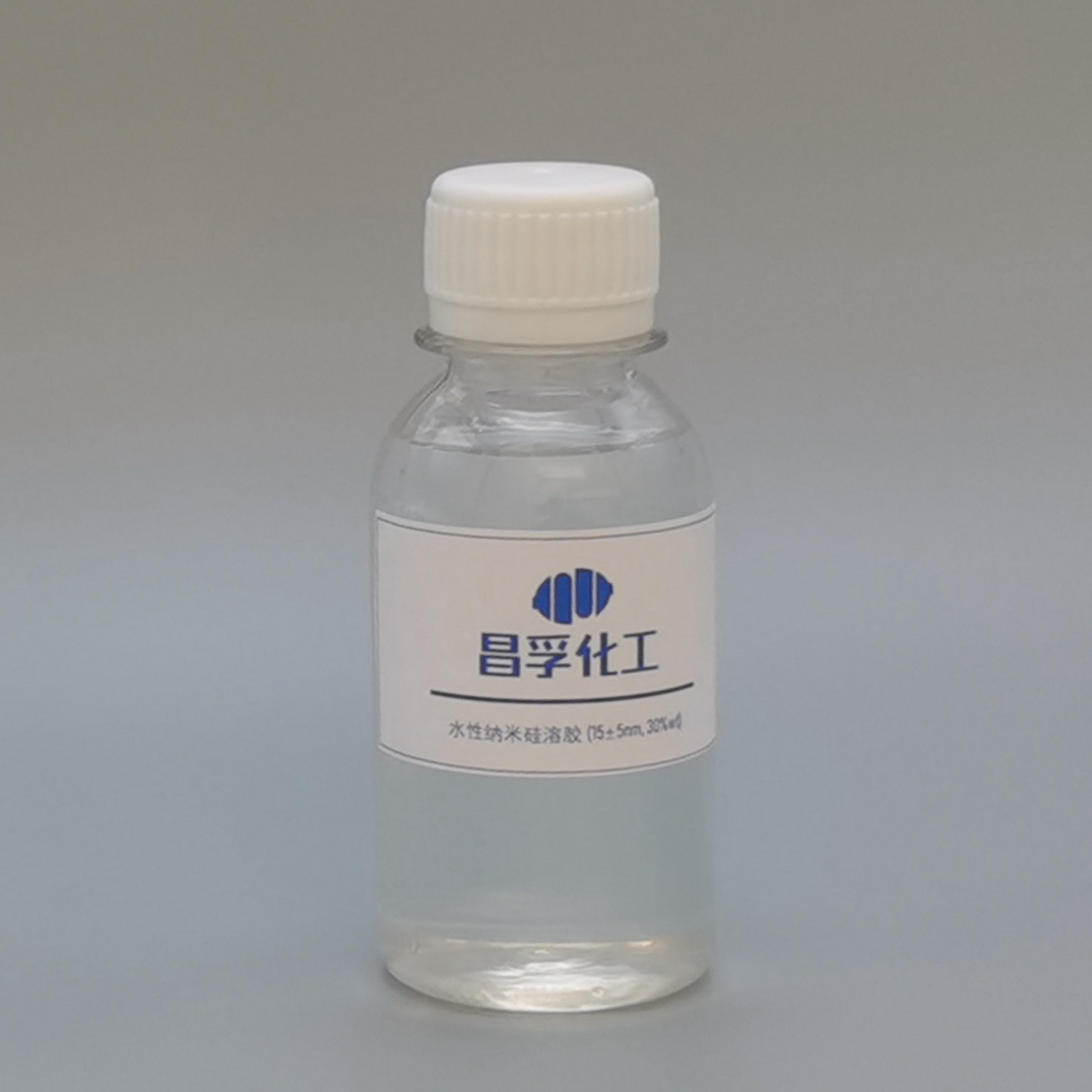
Contact Changfu Chemical Now!
+86 27 8439 6550 | +86 181 6277 0058

Colloidal Silica
Colloidal silica is a stable, nano-sized suspension of silica particles in a liquid medium, typically water or organic solvents. It is renowned for its unique properties, including high surface area, excellent dispersion stability, and low viscosity. Widely used across various industries, colloidal silica serves as a key ingredient in coatings, adhesives, and sealants, enhancing strength and durability. Additionally, it plays a crucial role in applications such as electronics, ceramics, and personal care products, where it contributes to improved performance and quality. Its versatility and effectiveness make colloidal silica an invaluable material in both industrial and consumer applications.

Colloidal Silica
Colloidal silica is a stable, nano-sized suspension of silica particles in a liquid medium, typically water or organic solvents. It is renowned for its unique properties, including high surface area, excellent dispersion stability, and low viscosity. Widely used across various industries, colloidal silica serves as a key ingredient in coatings, adhesives, and sealants, enhancing strength and durability. Additionally, it plays a crucial role in applications such as electronics, ceramics, and personal care products, where it contributes to improved performance and quality. Its versatility and effectiveness make colloidal silica an invaluable material in both industrial and consumer applications.
How to Choose Colloidal Silica for Different Application
How to Choose Colloidal Silica for Different Application
Colloidal silica is commonly used in ceramics, glass, coatings, paper, and personal care products. By carefully considering the following factors, you can select the most suitable colloidal silica for your specific needs, optimizing performance and reliability in your applications.
- Dispersion Medium: Choose between organic solvent-based or water-based colloidal silica depending on the final application and environmental considerations.
- Particle Size: Smaller particles can enhance properties like smoothness and adhesion, while larger particles may improve thickness and stability.
- Viscosity Control: Colloidal silica can be used to adjust the viscosity of formulations, so consider the required consistency for your application.
Colloidal silica is commonly used in ceramics, glass, coatings, paper, and personal care products. By carefully considering the following factors, you can select the most suitable colloidal silica for your specific needs, optimizing performance and reliability in your applications.
- Dispersion Medium: Choose between organic solvent-based or water-based colloidal silica depending on the final application and environmental considerations.
- Particle Size: Smaller particles can enhance properties like smoothness and adhesion, while larger particles may improve thickness and stability.
- Viscosity Control: Colloidal silica can be used to adjust the viscosity of formulations, so consider the required consistency for your application.
Advantages of Changfu Colloidal Silica Using Synthetic Chemical Processes
Advantages of Changfu Colloidal Silica Using Synthetic Chemical Processes
Controlled Particle Size: Synthetic processes allow precise control over particle size and distribution.
Purity: High purity levels can be achieved, reducing contaminants that could affect performance.
Tailored Properties: Properties such as surface charge and hydrophilicity can be engineered for specific applications.
Scalability: Synthetic methods can be scaled up for industrial applications while maintaining consistency.


Controlled Particle Size: Synthetic processes allow precise control over particle size and distribution.
Purity: High purity levels can be achieved, reducing contaminants that could affect performance.
Tailored Properties: Properties such as surface charge and hydrophilicity can be engineered for specific applications.
Scalability: Synthetic methods can be scaled up for industrial applications while maintaining consistency.
Properties of Colloidal Silica
Properties of Colloidal Silica

Colloidal silica possesses several unique properties that make it valuable in various applications. Here are some key characteristics:
High Surface Area: Colloidal silica has a large surface area relative to its volume, which enhances its reactivity and effectiveness as a filler or binder.
Small Particle Size: The small particle size contributes to a high degree of dispersion and stability in formulations, allowing for uniform distribution in various media.
Stability: Colloidal silica can remain stable in both aqueous and organic solutions, which is crucial for consistent performance in coatings and adhesives.
Transparency: Colloidal silica is often transparent or translucent, making it suitable for applications where optical clarity is important, such as in coatings and adhesives.
High Thermal Stability: Colloidal silica can withstand high temperatures, making it suitable for use in applications requiring thermal resistance, such as ceramics and refractory materials.
Low Shrinkage: When used in formulations, colloidal silica typically exhibits low shrinkage upon curing, which helps maintain dimensional stability. Enhanced Adhesion: Colloidal silica can improve adhesion properties in coatings and adhesives due to its high surface area and reactivity with various substrates.

Colloidal silica possesses several unique properties that make it valuable in various applications. Here are some key characteristics:
High Surface Area: Colloidal silica has a large surface area relative to its volume, which enhances its reactivity and effectiveness as a filler or binder.
Small Particle Size: The small particle size contributes to a high degree of dispersion and stability in formulations, allowing for uniform distribution in various media.
Stability: Colloidal silica can remain stable in both aqueous and organic solutions, which is crucial for consistent performance in coatings and adhesives.
Transparency: Colloidal silica is often transparent or translucent, making it suitable for applications where optical clarity is important, such as in coatings and adhesives.
High Thermal Stability: Colloidal silica can withstand high temperatures, making it suitable for use in applications requiring thermal resistance, such as ceramics and refractory materials.
Low Shrinkage: When used in formulations, colloidal silica typically exhibits low shrinkage upon curing, which helps maintain dimensional stability. Enhanced Adhesion: Colloidal silica can improve adhesion properties in coatings and adhesives due to its high surface area and reactivity with various substrates.
News & Blog in Changfu Chemical
News & Blog in Changfu Chemical

+86 27 8439 6550
+86 181 6277 0058
sales@cfsilanes.com
Optics Valley Bio-City
No. 666, Gaoxin Avenue
Hongshan District, Wuhan City

+86 27 8439 6550 | +86 181 6277 0058
sales@cfsilanes.com
Optics Valley Bio-City
No. 666, Gaoxin Avenue
Hongshan District, Wuhan City
Copyright © Hubei ChangFu Chemical Co., Ltd. All Rights




